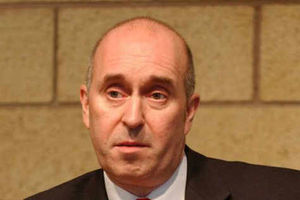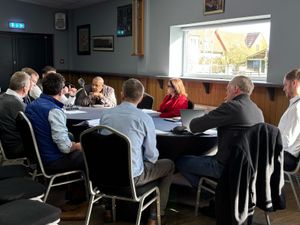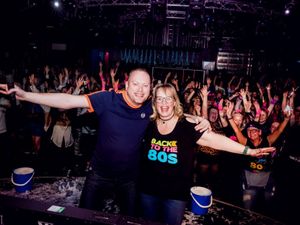Ex-Stafford Hospital chief breaks his silence over scandal
The man behind the Stafford Hospital scandal today broke his two-and-a-half year silence over the affair, claiming he thought of taking his own life.

The man behind the Stafford Hospital scandal today broke his two-and-a-half year silence over the affair, claiming he thought of taking his own life.
Former chief executive Martin Yeates gave his account in a 51-page witness statement, seen by the Express & Star ahead of it being read out to the Francis Inquiry today. He was deemed too ill to attend in person.
A defiant Mr Yeates repeatedly claimed the hospital had "turned the corner" and "things were on the up" when the Healthcare Commission's investigation in 2008 stopped progress "in our tracks".
The commission reported that hundreds of patients may have died needlessly at the hospital. Mr Yeates, who resigned to avoid disciplinary action in May 2009, portrayed himself and his team as victims, used as a "political football" and hounded by the media and campaigners in what he described as a "genuine living nightmare."
He said: "My ill-health and genuine consideration of taking my own life on a number of occasions, has been a consequence...of the impact of the investigation, the immediate aftermath and the continued harassment nearly three years after the event."
The statement made no mention of the first inquiry by Robert Francis QC, the continuing problems in A&E in 2009, or the controversial re-organisation of wards while Mr Yeates was in charge.
In his statement he said he can't give evidence in person for "medical reasons" but he added: "I hope following receipt of my statement, I will be allowed to move forward with my life.
"The personal costs to me and my family of being hounded by the Press and certain campaign groups is irretrievable; I have lost my family, my career and my health."
He said the statement is not about vindicating himself but is his "honest, open and candid" views of his time at the hospital. The former director at Wolverhampton's New Cross Hospital and the city's primary care trust began his statement with an apology to families who suffered.
Since the scandal broke there have been a number of protests by action group Cure the NHS, fronted by Stafford cafe owner Julie Bailey and relatives of patients who died, which led the Health Secretary And-rew Lansley to order the full public inquiry. The previous inquiry held by Mr Francis has been criticised for being too limited and for taking place in private.
Mr Yeates said: "I appreciate their loss and sincerely apologise to the families of those whose relatives who did not receive the high standard of care we all expect from the NHS."
Mr Yeates, who received £80,000 in notice pay and a rumoured pension payout of £360,000 when he resigned in May 2009, said the hospital was "forced" to make difficult decisions. The trust slashed £10 million and axed around 140 nurses under his leadership. Mr Yeates, who has been heavily criticised by inquiry witnesses, said when he arrived at the hospital there was already a £3 million gap in the budget.
He said he saw this as a "positive challenge" but added: "Looking back I do not believe anyone really appreciated the breadth and width of the internal problems at Mid Staffs. It was, and remains my opinion, that nothing good came out of the HCC's investigation in terms of the hospital's future and improvements in service taking place at the time.
"There are a number of things which given my time again I would do differently."
He said he would not have put the time and effort into the job saying: "It wasn't worth it given what has happened to me and my family. My family, friends, and colleagues, my home, my health and my career have been broken irretrievably." He said he should have done more to address staffing issues adding: "I undoubtedly should have taken much swifter and tougher action against the surgeons who were putting patients at risk."
Commenting on high death rates at the hospital Mr Yeates, who worked for 32 years in the NHS, said: "I do not believe as many patients died as some have indicated; I do however accept that there were serious issues of quality and care in some areas of the hospital."
Commenting on letters he was sent warning of high death rates in some areas of the hospital in 2007 Mr Yeates said their significance did "not register with me."
"The honest truth is that at the time I didn't know enough about them to be concerned. The letters just didn't ring any alarm bells. They clearly should have."
He argued there should be more support for chief executives and told the inquiry: "I cannot turn the clock back, but I hope this inquiry gives some consideration as to how to ensure this experience is not repeated ever again."





